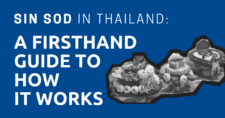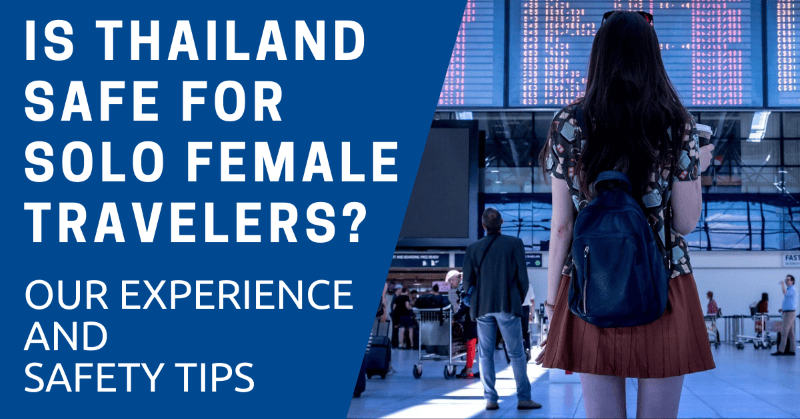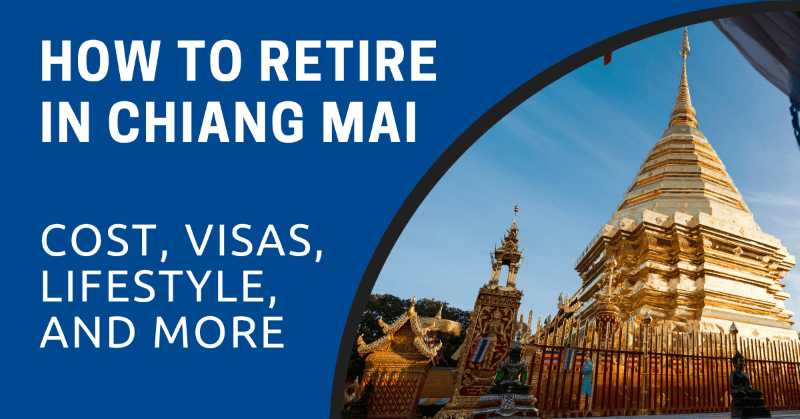
A detailed guide to retiring in Chiang Mai, Thailand. Learn about visa options, housing, monthly costs, safety, and what daily life feels like for expats and retirees.
I’ve been to Chiang Mai many times, and I even came close to buying a house there. It’s not just a retirement hotspot for foreigners, many Thais dream of retiring there too. And it’s easy to see why.
Life moves slower. The city gives you the best of both worlds: mountains, fresh air, and green space, combined with city comforts like hospitals, malls, cafés, and co-working spots. Chiang Mai also has an international airport, six universities, and excellent hotels, restaurants and hospitals.
Whether you want a peaceful morning walk, a good bowl of khao soi, or a reliable hospital down the road, Chiang Mai has it. As a plus, it’s in a convenient location too. If you want to fly to Bangkok it’s only an hour, Phuket is two, Bali three, and Tokyo six.
In this guide, I’ll walk you through everything you need to know about retiring in Chiang Mai, from lifestyle and healthcare to costs and visa options, based on my experiences and those of other long-term expats who’ve already made the move.
"*" indicates required fields
Disclaimer: This article may include links to products or services offered by ExpatDen's partners, which give us commissions when you click on them. Although this may influence how they appear in the text, we only recommend solutions that we would use in your situation. Read more in our Advertising Disclosure.
Contents
- Why Retire in Chiang Mai
- Transport Links
- Challenges of Retiring in Chiang Mai
- Is it Safe to Retire in Chiang Mai?
- Cost of Living in Chiang Mai for Retirees
- Visa Options
- Accommodation
- Food
- Finance
- Health Insurance
- Health, Fitness, and Wellness
- Getting Around in Chiang Mai
- Sim Cards, Phone & Internet
- Pets
- Best Areas to Live in Chiang Mai for Retirees
- What Life Is Like in Chiang Mai?
- How to Meet New People
- Thai Culture
- Why You Should Retire in Chiang Mai
- Who Shouldn’t Retire in Chiang Mai
- Chiang Mai vs Other Cities
- Your Chiang Mai Move Checklist
- Frequently Asked Questions About Retiring in Chiang Mai
- Is Chiang Mai a good place for foreigners to retire?
- How much does it cost to retire in Chiang Mai?
- Is healthcare good in Chiang Mai for retirees?
- Can foreigners buy property in Chiang Mai?
- What visa do I need to retire in Chiang Mai?
- What’s the air quality like?
- Is it easy to meet people and make friends?
- Special Thanks
(And How It’s Costing Them)
Most expats throw money away, get lost in red tape, and miss the local hacks that make life easier and cheaper. ExpatDen Premium gives you the secrets seasoned expats use to save, earn, and thrive beyond the basics, saving you thousands and opening doors you didn’t even know existed.
Here’s what’s inside:
- Housing Hacks: Slash your rent by 40% or more - because the locals are laughing at what you’re paying.
- Banking Mastery: Stop wasting on fees and get top exchange rates. Why give your money away?
- Healthcare for Local Prices: Quality treatment without the expat price tag.
- Visa and Legal Shortcuts: No more bureaucratic nightmares. Get the visa and residency secrets that others pay their lawyer dearly for.
- Deep Discounts: Find the savings locals rely on for groceries, dining, and more.
If you’re serious about making Thailand work for you, join ExpatDen Premium and make Thailand work for you.
Why Retire in Chiang Mai
If you’re thinking about retiring in Thailand, here’s why Chiang Mai might be the right place for you.
Quality of Life
When people ask me why Chiang Mai is such a popular place to retire, I always say: it’s not just about affordability. It’s about quality of life. And I’m not the only one who feels that way.

“I’m attracted to Chiang Mai by the tropical climate (as an Arizonan, I love warm weather), affordable cost of living, wonderful food, low street crime and welcoming culture.”
Dan Fellner, a freelance travel journalist and photographer based in Scottsdale, Arizona. He has visited and written about more than 130 countries on all seven continents.
A few years ago, I visited Chiang Mai to meet up with my old manager from Bangkok. She had recently relocated there, and I was curious why. Her answer was simple: “Chiang Mai gives me a better life.” And honestly, it’s easy to see why.
You can live in the heart of the city with easy access to shopping malls, cafés, coworking spaces, and hospitals, just like in Bangkok. But drive 30 minutes in any direction and you’re surrounded by mountains and nature. That mix of urban convenience and natural escape is hard to find in other parts of the country.
But quality of life in Chiang Mai isn’t just about numbers. The food scene in Chiang Mai is also great. You can grab a bowl of khao soi for 50 baht at a local market or dining on Northern Thai fusion at a riverside restaurant. You’ll never run out of affordable and delicious options.
Then there’s the community. Chiang Mai has one of the most welcoming expat scenes in Southeast Asia, especially for retirees and digital nomads. It doesn’t take long to feel connected.
In short, everything blends together in Chiang Mai, affordability, convenience, nature, food, and a strong social scene, creating a lifestyle that is not just good, but great.
Infrastructure
The infrastructure in Chiang Mai is pretty good. You still get modern comforts like international supermarkets, private hospitals, gyms, yoga studios, and fast internet, but without the chaos of Bangkok.
Getting around the city is fairly easy. While there’s no BTS or MRT here, you can rent a motorcycle for a few thousand baht a month, and it can take you anywhere. If it’s in the city, it should be within a 15-minute ride.
If you don’t know how to ride a motorcycle, you can use songthaews (red shared trucks) or ride-hailing apps like Bolt or Grab to get around. Trips around the city usually cost between 60 to 120 baht.
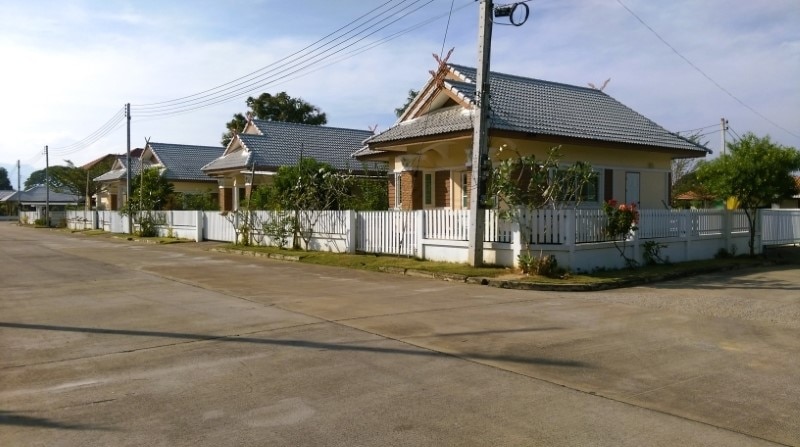
The Internet in Chiang Mai is fast and reliable. (Remember, it’s a hub of digital nomads.) You can get 500 Mbps fiber plans for about 599 THB per month. It works perfectly fine for streaming, Zoom calls, and general browsing, even in suburban areas like San Sai or Hang Dong.
There’s no shortage of water or electricity. Blackouts rarely happen unless you live on top of a mountain. To put it simply, the city is well equipped for daily life. Everything works. You don’t need to give up modern convenience to enjoy a more relaxed pace of living here.
Healthcare
This is a great perk. In my opinion, the healthcare scene in Chiang Mai for expats is only second to Bangkok. There are a lot of affordable private hospitals here, and most of them offer English-speaking services, fast appointments, and modern facilities.
Some of the most popular hospitals among expats include:
There’s also Maharaj Nakorn Chiang Mai Hospital, which is the teaching hospital of Chiang Mai University and is widely recognized as the best hospital in Northern Thailand (source).
In addition to hospitals, you’ll find clinics and pharmacies spread all throughout the city. Whether you need a quick checkup, blood test, or prescription refill, it’s usually fast and easy to get what you need. Many clinics operate on a walk-in basis, and pharmacies are typically open late, even on weekends.
Another unique advantage in Chiang Mai is the availability of retirement homes and dementia care facilities. This makes it easier for retirees to plan long term. If you eventually need assisted living or specialized care, those services are already here.
If you’re planning to stay for the long run, this kind of setup means you don’t have to leave the city as your healthcare needs change. You can age in place comfortably.
Find out more: My Top Hospitals in Chiang Mai for Foreigners as an Ex-Medical Staff
Language
English is commonly spoken in places where most expats go, like major hospitals, shopping malls, banks, and immigration offices. So if you stick to central Chiang Mai, especially areas like Nimmanhaemin or the Old City, you’ll rarely face a serious language barrier.
That said, learning Thai is still very useful, especially when you’re dealing with landlords, buying fresh produce at the market, or getting things done outside of the tourist zones. Even just learning a few basic phrases can make daily life a lot smoother.
Or at the very least, learn “Tinglish” by adding “kha” if you are female or “krab” if you are male at the end of a sentence, which will make it polite. For example, “Thank you krab.” This can easily make Thai people appreciate you.
One thing to keep in mind is that once you leave the city center and head into suburban or rural areas, English is much less common. You might struggle to communicate in smaller clinics, banks, or local shops unless you know some Thai or bring a translator app.
It’s something to consider if you’re planning to settle outside the main expat zones.
Tip: It’s best to learn some Thai (even 50-100 words even) in order to understand the people, culture, and navigate social situations as well as make Thai friends. There are a variety of schools and classes, tutors online and in person, YouTube channels and apps to help you learn and most Thais are very encouraging when you can simply say: hello, goodbye, never mind, and count to ten!
Community
One of the best things about retiring in Chiang Mai is how easy it is to connect with other people. The city has a long-established expat scene, so whether you’ve just arrived or have been living here for years, you’ll find plenty of ways to build a social life.
From what I’ve seen on my visits, retirees are everywhere. I often see them walking inside department stores, chatting in cafés, or drinking in a good bar near walking streets. This means it’s not hard to find people in your age group who are living the same lifestyle. You won’t feel out of place.
And if you’re wondering how to actually meet people once you arrive, I’ll talk more about that later in the article.
Transport Links
One thing that makes Chiang Mai great for retirement is how easy it is to get around, both locally and internationally.
Chiang Mai has its own international airport just 10–15 minutes from the city center. You can fly directly to Bangkok, Phuket, Chon Buri, and other parts of Thailand. There are also direct international flights to countries like Singapore, Malaysia, Japan, South Korea, China, and Laos.
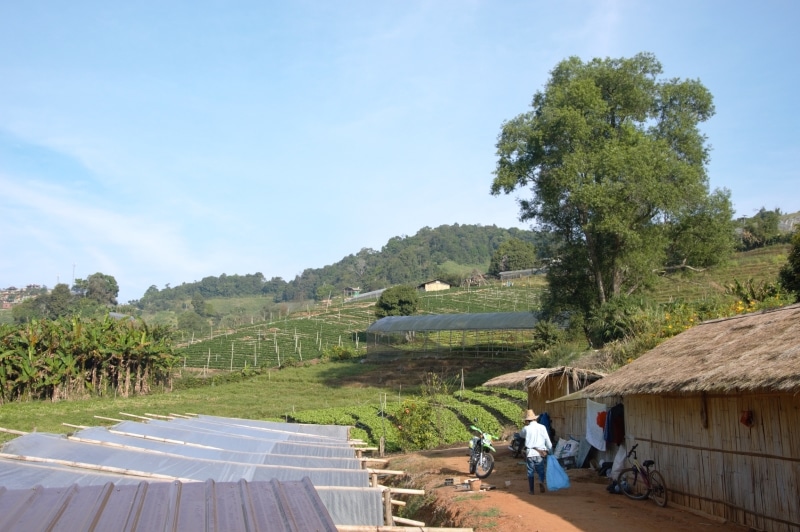
So whether you’re planning a beach trip or flying back home to visit family, it’s simple and convenient. You don’t need to go through Bangkok every time.
This easy access to flights makes traveling, doing business trips, or even short holidays a lot easier.
You can check all international flights from Chiang Mai from the Chiang Mai International Airport website.
Challenges of Retiring in Chiang Mai
Chiang Mai has a lot going for it, but it’s not perfect. Like anywhere else, there are a few downsides to be aware of.
While none of these challenges are deal-breakers for most retirees, they’re definitely worth factoring into your plans, especially if you’re sensitive to air quality.
Air Pollution
Air pollution is the biggest issue. From February to April each year, the city experiences its annual “burning season,” when farmers in the region (and neighboring countries) burn crop residue. During this time, PM2.5 levels often spike well above 180 AQI, and on some days, it’s much worse.
According to IQAir’s 2024 World Air Quality Report, Chiang Mai was ranked as one of the most polluted cities in the world during parts of the burning season.
Here’s a rough month-by-month breakdown based on IQAir data:
- January: Moderate (~40–50 µg/m³)
- February: Unhealthy for sensitive groups (~60–80 µg/m³)
- March: Unhealthy (~80–120 µg/m³) – worst month
- April: Starts improving (~50–70 µg/m³)
- May–December: Generally Moderate (~20–40 µg/m³)
That said, many expats have found ways to deal with it. HEPA air purifiers are now widely available in Chiang Mai, and some retirees even go the extra mile by setting up positive pressure rooms to keep their indoor air clean.
Others simply leave town and head south to beach destinations until the smoke clears.
Traffic
Traffic is another growing concern. While it’s nowhere near Bangkok levels, Chiang Mai has become more congested over the years, especially during rush hours around school drop-off and pick-up times.
Roads near major intersections like Huay Kaew, Santitham, and Central Festival can get packed. So, driving in the city during those hours can be a real headache.

“The city offers modern conveniences, including high-speed internet, shopping malls, international restaurants, and co-working spaces.”
John Quinn, Training Director of SEE TEFL, a TEFL school in Chiang Mai
Flood
Flooding also happens almost every rainy season. Certain parts of the city are prone to flooding after heavy downpours. Commonly affected areas include Chang Khlan Road (near the Night Bazaar), the Chiang Mai–Lamphun Road, and low-lying neighborhoods along the Ping River.
The good news is that most modern condo buildings are constructed above flood-prone zones, and the worst-hit areas are well known among locals. If you’re planning to rent or buy, it’s a good idea to ask about the area’s flood history before making any commitments.
You can also check flood-prone zones using this Chiang Mai University flood map. While it’s only in Thai, it’s still helpful.
Is it Safe to Retire in Chiang Mai?
Chiang Mai is safe. In fact, it’s one of the safest cities in Thailand. You can walk around most areas at night without worrying much. The most common safety concern I’ve seen is accidents from riding scooters, especially when going downhill or during rainy days. So, just ride carefully and wear a helmet.
If you want a deeper look into safety in Chiang Mai, I wrote a full article about it here: Is Chiang Mai Safe?
Cost of Living in Chiang Mai for Retirees
One of the biggest reasons I’d recommend Chiang Mai for retirement is the cost of living. Compared to Bangkok or Phuket, it’s a lot cheaper, and when you put it up against North America or Europe, it feels like a bargain.
From what I’ve seen, you can live pretty comfortably here on about US$1,500 a month (around 55,000 THB). And if you’re on a tighter budget, I know retirees who make it work with around US$900 (33,000 THB).
On top of that, there are plenty of free or inexpensive things to do, like walking through safe, clean parks, grabbing dinner at a night market for just US$2–5 (70–150 THB), or checking out weekly cultural events.
“33,000 THB (~$900) covers my rent, local meals, and transport. That’s enough for a frugal but fun lifestyle.” A U.S. military retiree on an interview on Poppin’ Smoke,
Here’s roughly what starting monthly expenses look like for a single retiree:
- Rent: US$300–500 (12,000–18,000 THB for a modern one-bedroom condo)
- Food: about US$300 (mostly Thai food, with some Western meals mixed in)
- Transportation: US$50–80 (a motorbike rental, Grab rides, or public transport)
- Utilities & Internet: around US$50 (electricity, water, and fiber internet)
- Personal Expenses: US$300–400 (things like healthcare, entertainment, and short trips)
Total: US$1,000–1,330 (≈37,000–49,000 THB)
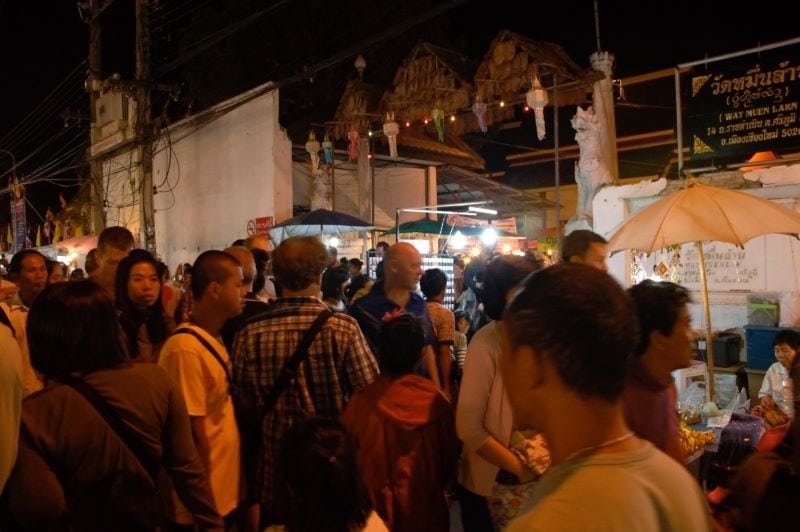
That’s if you’re living in central Chiang Mai, areas like Nimmanhaemin or Santitham. If you head out a bit farther, to places like Hang Dong, Doi Saket, or San Sai, your rent could be even lower.
How Different Budgets Look in Real Life
- Budget Living – Around US$1,000
While I’ve seen some digital nomads get by on US$600–US$800, for most retirees, US$1,000 is a safer number. That usually covers US$250–US$400 for rent, US$200 for food, and US$200–US$400 for everything else. It’s not luxury, but it’s comfortable. - Mid-Range Living – US$1,500 to US$2,000
This is where I see most retirees settle. With this budget, you can rent a modern condo with a pool or even a small house (US$600–800), ride a scooter, eat out every day (including Western food), and still have room for extras like Muay Thai classes, yoga, spa treatments, and weekend trips. - Luxury Living – US$2,500+
If you prefer the high life, Chiang Mai makes it easy. Think spa days, weekend getaways, elephant camps with overnight stays, five-star hotels in Chiang Rai, laundry services that pick up and deliver, and frequent trips to Bangkok or Phuket. At this budget, you could rent a high-end condo in Nimmanhaemin or a spacious two- or three-bedroom house outside the city.
If you’d like to see more detailed breakdowns from actual expats living here, I put together a full guide that dives deeper into the numbers.
For more detailed figures from actual expats, check out our full living in Chiang Mai guide.
Visa Options
If you’re planning to retire in Chiang Mai, you’ll need a long-term visa. A tourist visa won’t cut it in the long run, though it can be handy if you just want to explore first.
The Retirement Visa (Most Popular)
The most common option for retirees is the Non-Immigrant O-A (or O) visa. To qualify, you need to:
- Be at least 50 years old
- Have either an income of 65,000 THB per month (about US$2,000) or at least 800,000 THB (around US$25,000) in a Thai bank account for two months before applying.
Once approved, you’ll need to maintain that balance. The good news is you can drop it to 400,000 THB three months after your visa is granted. We have another detailed article about the visa for retirees. You can check it out here.
In addition, from my experience, the Chiang Mai immigration office is generally straightforward to deal with. Staff usually speak enough English, which helps, but the office gets very busy. If you want to avoid spending the entire day there, plan to arrive early, around 8:30 AM is best.
Tip: If you’re renewing your retirement visa, make sure to update your bank book the day before, or even the morning of, your immigration appointment. Officers want to see the most recent entry, and not having it can cause delays.
Other Visa Options
While the retirement visa is the go-to choice, Thailand has a few other visas that might suit different needs:
- Tourist Visa: Lets you stay 60 days, extend another 30–60 days, and do visa runs for a total of up to a year. Not ideal for retirees but useful if you’re testing the waters.
- Destination Thailand Visa (DTV): A newer visa that offers a five-year, multiple-entry stay. You can stay up to 180 days per entry (extendable for another 180). It’s mainly aimed at remote workers, digital nomads, or people coming for cultural activities like Muay Thai training or Thai cooking classes.
If you don’t want to deal with the paperwork yourself, there are brokers in Chiang Mai who can guide you through the whole process. They’ll advise on requirements, handle the documents, and even go with you to immigration. It’s worth talking to someone before you arrive because some visas must be applied for outside of Thailand, or require entering on the right visa type.
Accommodation
Most retirees in Chiang Mai choose to rent. It’s easier, cheaper, and gives you flexibility. Buying property is also possible, but based on what I’ve seen, like other parts of Thailand, most foreigners who own houses here are married to Thai citizens. If you’re single, you can legally buy a condo, as long as it’s in a building that meets foreign ownership rules.
Condos range from about US$250–300 (~9,000–11,000 THB) per month for a simple but comfortable studio, up to US$1,500 (~55,000 THB) for a high-rise luxury condo in Nimmanhaemin or right on the Ping River.
Homes start around US$600 (~22,000 THB) per month for a two-bedroom place in Hang Dong, about 30 minutes from town. On the higher end, you’ll pay US$1,500–2,000 (~55,000–74,000 THB) for a luxury 3–4 bedroom house with a pool closer to the city center.
Guesthouses are another good option. They often come with a garden, a manager who can act as a guide, and a shared kitchen. Prices usually run from US$400–600 (~15,000–22,000 THB) per month.
Here’s what housing costs and facilities typically look like:
Condos:
- One-bedroom in Nimman: 18,000–25,000 THB/month
Usually includes a gym, rooftop pool, 24/7 security, and underground parking. - Studios in older buildings: 10,000–12,000 THB/month
Basic units, often without elevators or modern security. Sometimes there is no pool or gym. - Newer units near CMU or Santitham: 14,000–18,000 THB/month
Often come with a small fitness room, keycard access, laundry machines, and good Wi-Fi.
Houses:
- Thai-style homes on outskirts (e.g., Hang Dong, Doi Saket): from 15,000 THB/month
Usually unfurnished or semi-furnished with Thai style kitchen. Basic garden area. Some have carports but limited amenities. - Homes in gated communities: 20,000–35,000 THB/month
Often come with shared security, small clubhouses, shared pools, and well-maintained surroundings. - Luxury villas with pools: 45,000 THB/month and up
Private swimming pools, large gardens, Western kitchens, multi-car garages, popular in Mae Rim and foothill areas.
You can find housing for any kind of lifestyle here. If you want to live in the city and get around quickly, renting a condo is your best bet. But if you prefer more space, a house on the outskirts, like in Hang Dong or Doi Saket, gives you a garden, privacy, and a quieter area.
Tip: Almost all rental prices in Chiang Mai are negotiable. If you’re not sure how to bargain Thai style, feel free to reach out and we’ll give you some pointers.
Food
Chiang Mai has one of the most diverse food scenes in Thailand. You can easily find everything from THB40 street food to a 5-star Western dinner with wine.
For retirees, this variety is great. You don’t need to spend much to eat well. Local markets like Warorot or Siri Wattana offer fresh produce, ready-to-eat Thai meals, and even organic options.
Northern Thai food is also quite easy to eat. It tends to be milder than food from other regions, less spicy and often with a more balanced flavor. Dishes like khao soi, nam ngiao, and sai ua are flavorful but not overpowering.

Life moves slowly, smiles are wide, and you have the best of both worlds; city and nature: five-star hotels, modern condos and cute guesthouses, plentiful Thai and foreign food
Vanessa Rodriguez, the founder of RetireChiangMai
If you’re in the mood for something familiar, you can find my Western restaurants in areas like Nimmanhaemin, the Old City, or Hang Dong. There’s also cafes serving sourdough bread, vegan spots, Italian, Indian, and even Mexican food. So if you want variety, you won’t get bored.
If you’re into healthy eating, there are lots of vegetarian and vegan options. You’ll also find farmer’s markets with organic produce and health food stores like Rimping and Lemon Farm.
Finance
Opening a bank account in Chiang Mai is simple, especially for retirees. Branches inside Maya Mall or Central Chiang Mai Airport Mall (formerly Promenada) are familiar with expats and long-stayers.
As long as you have a valid long-term visa like the Non-Immigrant O-A, you can usually open an account with your passport and visa paperwork.
Also, once you have a Thai bank account, managing your money is much easier.
These days, Thailand is quickly becoming a cashless society where most people pay using QR codes. It’s the most common method for everything from groceries to café bills. The only time you really need cash is for things like riding a songthaew (red truck) or tipping at a small local shop.
To use QR payments, you just need a Thai bank account. Most banking apps come with a built-in scanner, and payment takes just a few seconds.
Also, you need a Thai bank account to maintain your retirement visa. Most retirees manage their money by sending funds from their home country bank to their Thai bank account. It helps to leave enough in your Thai account to meet visa renewal requirements (800,000 THB for retirement visa holders).
Tip: If you can, open two accounts: one for meeting visa requirements and another for daily spending. This keeps things organized and avoids accidental withdrawals that might affect your visa.
I don’t recommend you to keep using ATM methods since ATM fees on foreign cards are outrageous. Also, if you find your account locked for some reason, because of the time zone difference, you may call your bank at night in their timezone to get it unlocked. Definitely not a good experience.
Health Insurance
This is one of those things that comes with both pros and cons, not just in Chiang Mai, but all over Thailand.
The good news is that healthcare here is generally affordable, even at private hospitals. The challenge is that health insurance can be expensive and harder to get, especially once you’re in your 60s or older.
From what I’ve seen, retirees in Chiang Mai usually fall into three groups:
- Those who don’t get insurance and just pay out of pocket when needed
- Those who get a basic plan mainly to meet visa requirements
- Those who go all in with a comprehensive policy and don’t mind the premium
There’s no one-size-fits-all answer here. Just pick what works best for your health, lifestyle, and budget.
Also, insurance is complicated. If you want to explore your options or find the best plan, it’s always a good idea to talk to a licensed insurance broker.
We also put together a full article about health insurance in Thailand to help you decide. You can read it to find out more information.
Health, Fitness, and Wellness
Chiang Mai is one of those places where it feels easy to stay healthy. The climate is comfortable most of the year, the food is both tasty and light, and there’s no shortage of ways to keep active. You’ll find plenty of gyms, yoga and pilates studios, and more Muay Thai gyms than you’d expect. If you’re into the outdoors, the Ping River is right there for kayaking, and the mountains around Doi Suthep have endless trails for hiking, biking, or even motocross.

“Retirees can stay active through yoga classes, golf courses, and community sports. The city’s terrain is ideal for cycling, and there are numerous gyms and wellness centers”
John Quinn, Training Director of SEE TEFL, a TEFL school in Chiang Mai
For me, just walking or biking around the city feels like enough exercise some days. It keeps me moving while letting me take in the scenery. Add in the fresh local food, and it’s not hard to keep a balanced lifestyle here without really trying.
Getting Around in Chiang Mai
I have a bit of a love-hate relationship with transportation in Chiang Mai. Riding a scooter here is great, it’s convenient, chill, and gets you anywhere in the city within 15 minutes. But I’m not a fan of songthaews (red trucks). There’s no standard pricing. One time, I paid 200 THB to get to the airport, and the next time, another driver charged me only 50 THB for the same trip.
So these days, I avoid them and just use ride-hailing apps like Grab or Bolt. Prices are fair, and you don’t need to negotiate.
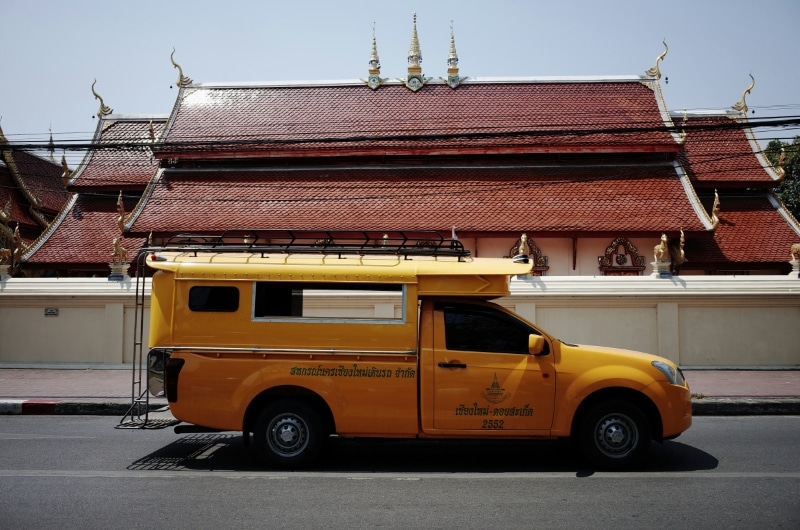
Still, scooters are the most convenient option. You can rent a small scooter from 115 to 225 cc for just US$100 a month. But they’re not for everyone.
If you’re not confident on two wheels, or just want more safety, I’d recommend getting a car. You can find a decent used car for under 400,000 THB. Stick with Japanese brands like Honda or Toyota. They’re cheap to maintain, and every mechanic knows how to fix them.
Also, having a car really helps during the burning season. You can keep a portable air purifier inside, which makes a big difference when air quality gets bad but you still need to go out.
Please note that driving in Thailand can be tricky. So, you should learn driving regulations first and drive slowly, carefully, and don’t jump lights.
Sim Cards, Phone & Internet
You can either buy an international SIM card before you arrive or just grab one when you land in Bangkok. Both Suvarnabhumi and Don Mueang airports have booths where you can get a SIM with phone and internet for 30 days.
If you don’t want to do it at the airport, 7-11 (Thais pronounce it like Se-veeeen) also sells SIM cards. They usually cost around US$5–10 (≈180–360 THB) per month, and the staff can help swap your SIM or top up credit right there at the counter.
Pets
Dogs and cats are both popular in Chiang Mai. You’ll find plenty of dog-friendly hotels, licensed vets, pet-friendly cafes, and even an active Facebook group for pet owners.If you plan to bring your dog to Thailand, you’ll need a permit from the Department of Livestock Development.
As for getting a pet in Chiang Mai, you can buy one, but it’s often better to adopt. There are rescue groups like WVS and New Hope for Animals, and plenty of options through Facebook groups. For cats, Adopt Meow is a good place to start, though you’ll also see strays all over the city. Many Muay Thai gyms and even monks at temples look after them.
One thing to keep in mind: very few condos allow pets, but many landlords renting out houses are fine with them.
Best Areas to Live in Chiang Mai for Retirees
Chiang Mai is made up of many distinct neighborhoods, each offering something different depending on your lifestyle, budget, and retirement goals.
Here’s a breakdown of the most popular areas to retire in Chiang Mai, based on real-life experiences, walkability, noise level, and amenities.
Old City
Pros: Walkable, historic charm, great access to temples and markets
Cons: Touristy, older buildings, crowded in high season
This is the historic and cultural center of Chiang Mai. Surrounded by a moat and remnants of the old city wall, it’s packed with temples, markets, street food, and guesthouses.
Some expats choose to live here because they can walk everywhere and enjoy the array of charming cafes, coffee shops, parks, temples, bookstores, and people watching.
However, you will be sharing space with lots of short-term travelers.
Nimmanhaemin
Pros: Walkable, modern condos, close to cafes, hospitals, and shopping
Cons: Expensive, noisy flight path, busy with younger expats
While Nimmanhaemin, or Nimman in short, is popular with digital nomads and younger expats, retirees who enjoy convenience and social scenes often like it too. It’s a trendy area filled with modern condo buildings, cafes, and co-working spaces, making it an easy place to socialize or spend a peaceful morning.
This area is perfect for those who like to be in the center of the action, with a more modern Asian style.
However, it’s also one of the pricier areas, and you’ll be living under the airport’s flight path, which some say causes disruptive noise (source).
Santitham
Pros: Affordable, local vibe, near Nimman
Cons: Fewer modern condos, noisier traffic areas, fewer English signs
Just north of Nimman, Santitham offers a more local vibe with lower rents and fewer tourists. It’s a more low-key area with a great mix of Thais and foreigners living here and a thousand cool little places to eat, enjoy a coffee, mingle, drink beer, people-watch, and train Muay Thai.
It’s not as polished as Nimman, and you won’t find many modern condos, but it’s very livable and close to everything.
Hang Dong
Pros: Spacious houses, expat communities, more nature
Cons: Car needed, longer trips into town, fewer walkable amenities
Hang Dong is located on the city’s southern outskirts, around 30 minutes from the Old Town. This suburban area is a good option if you want to live in a house with gardens and great views of the mountains. You can have a yard for your dogs, and a vegetable and flower garden.
It’s ideal if you want more space and don’t mind driving.
Mae Rim
Pros: Quiet, scenic, ideal for nature lovers and gardening
Cons: Far from city, need a vehicle, limited healthcare nearby
These rural districts are about 40 minutes outside the city and good if you value quiet, greenery, and mountain views. Mae Rim is more developed and popular among long-term expats. You can find single story houses with yards, houses within larger projects, and even villas on golf courses, with swimming pools, and also on the river.
However, you will need a car or motorbike to get around.
What Life Is Like in Chiang Mai?
Every time I go to Chiang Mai, it feels like time slows down. Unlike Bangkok where everything is busy and hectic, life here is calm and relaxed. Even the way people speak is slower.
You can expect a simple routine: morning jogs or cycling, followed by quiet coffee at a café. Then stay indoors during midday when the sun gets intense. In the evening, people head out again to night markets or grab street food.
In my opinion, nature is a big part of life here. There are plenty of hiking trails like Doi Suthep. You can also go camping in Doi Inthanon or Ob Khan National Park.
Cycling is popular too, especially up Doi Suthep. But be careful during long holidays, traffic can get bad, and cyclist accidents happen almost every year.
If you’re into wellness, there are meditation retreats, yoga classes, and affordable massages all over the city. Volunteering at animal shelters is also a common activity among retirees.

“I found an amenity that’s vitally important to me and one that I didn’t expect that Chiang Mai would offer — pickleball! As an avid pickleball player, I was excited to join a group of both Thais and expats who played several times a week at a local park. It was an unexpected treat!”
Dan Fellner, a freelance travel journalist and photographer based in Scottsdale, Arizona. He has visited and written about more than 130 countries on all seven continents.
When you want a change of pace, just head to a mall like Maya, Central Festival, or Central Chiang Mai Airport for shopping or a movie.
And if you prefer staying home, it’s easy to rent a house with space for gardening. For under 20,000 THB/month, you can get a place with a yard and grow your own vegetables or flowers.
In short, Chiang Mai offers a chill, low-stress lifestyle with plenty of ways to stay active. You can check the Tourism Authority of Thailand website and find out all activities you can do here.
How to Meet New People
Most newcomers start by joining local groups like the Chiang Mai Expats Club. These events are casual and welcoming, and they’re a great place to meet people, ask questions, and find your footing.
Volunteering is another way to get involved. Some retirees help out at animal shelters or spend time teaching English at hill tribes. Others join cooking classes, pottery workshops, or Thai language lessons, not just to learn, but to meet others doing the same.
That said, the community in Chiang Mai isn’t just limited to expats. Thai locals are generally warm, helpful, and used to interacting with foreigners, especially in neighborhoods like Nimmanhaemin and the Old City. You might not become best friends right away, but if you show respect and make an effort, relationships tend to grow naturally.
Once you settle in, it’s not unusual to find yourself greeting the same vendors, neighbors, or coffee shop staff every day. It’s that small-town feeling, inside a city, that helps many people feel at home here surprisingly fast.
Thai Culture
Thai culture is admired for its mix of elegance, style, and grace. It’s shaped by three main aspects: Buddhism and its emphasis on non-violence, respect for parents and the strength of family, and the monarchy, which helped Thailand remain independent during the colonial era.
It’s a high-trust, low-conflict, communal culture, very different from the individualistic and competitive culture in the West. You don’t have to act Thai, but understanding their values, remembering that we’re all guests here, and being mindful not to cause anyone to lose face will go a long way. Learning even just 50–100 Thai words will help, since the language reflects the culture.
There are also other cultures you should know:
- Sanuk (fun) and Riap Roi (proper) are two ideas that balance each other in Thai culture. The more Riap Roi you are, the more Sanuk you’ll enjoy. Sanuk means fun for fun’s sake: laughing, joking, and teasing gently with friends, even in tough situations. Riap Roi is about proper dress, behavior, and speech. It keeps all the fun in the right context. For example, wear proper clothing at temples (men, keep your shirts on), speak calmly without raising your voice, don’t point your feet or fingers at people, return a wai when someone greets you, and always show respect to women, the elderly, monks, temples, and the monarchy.
- Conflict: In a high-trust society like Thailand, conflict is handled differently. Smile, talk it out in private, keep it civil, and aim for a resolution that doesn’t cause anyone to lose face. Remember the phrase Mai Pen Rai—it means “don’t worry about it.”
- Anti-defamation laws: Also keep in mind that Thailand has strong anti-defamation laws. They apply even to American review sites like Yelp and Google, as well as platforms like YouTube and Instagram. Some influencers have run into trouble trying to cancel Thai businesses or pressure them for free stays
- Festivals: Festivals are another big part of Thai life, and Chiang Mai is known as the queen of festivals. Songkran (Thai New Year) is celebrated with a week of water fights, parades, and cultural events. Loy Krathong, the festival of lights, often coincides with Yi Peng, when candles are floated down the Ping River and lanterns are released into the sky. Thailand also celebrates Buddha Day based on the lunar calendar, when people visit temples in the morning to make merit by offering flowers, food, and money to monks, and join candlelight ceremonies at night.
Why You Should Retire in Chiang Mai
In opinion, Chiang Mai is ideal for retirees who:
- Want a slower-paced lifestyle: Life here isn’t rushed. People speak slower, traffic isn’t as crazy (outside of rush hour), and days feel slower.
- Enjoy greenery, mountains, and cooler air (in some seasons): The city is surrounded by mountains and national parks. You’re never far from hiking trails, waterfalls, or forest temples. Cooler temperatures, especially in December–January, make it very pleasant.
- Prefer space and comfort over high-rise living: Rent is affordable, so you can live in a house with a garden for under 20,000 THB/month, especially in areas like Hang Dong or Doi Saket. This is perfect for gardening, pets, or simply having outdoor space.
- Want a mix of nature and convenience
Chiang Mai is laid-back, but you still have access to good hospitals, malls, gyms, cafés, restaurants, and fast internet. It’s a good balance, not too remote, not too crowded. - Like staying active
There are plenty of things to do: yoga, swimming, cycling, golf, hiking, volunteering, pottery, and more. You’ll find others doing the same, especially in areas with active expat communities. - Want to be part of a welcoming expat scene
It’s easy to meet people your age here, at meetups, churches, cafés, or simply walking around Nimman or near the Old City.
Who Shouldn’t Retire in Chiang Mai
Chiang Mai is definitely not for everyone. Here are main disadvantages:
- You need clean air all year: This is the biggest problem right now. And it’s not just Chiang Mai but the entire North of Thailand. PM2.5 levels often rise above 180 AQI during the burning season.
- You want to live by the ocean: Chiang Mai is surrounded by mountains, not beaches. If sea views and ocean breezes are important to you, consider southern provinces like Hua Hin or Phuket.
- You need walkability or metro systems: Chiang Mai doesn’t have an MRT or BTS. You need a scooter or a car to get around easily. While you can walk around small areas like Nimman or the Old City, it’s quite limited.
Chiang Mai vs Other Cities
If you’re still deciding where to retire in Thailand, here’s how Chiang Mai stacks up against other popular expat cities. Each has its own pros, cons, and lifestyle. It really depends on what kind of lifestyle you want.
Chiang Mai vs Bangkok
Bangkok is fast-paced, crowded, and full of energy. You’ll meet people from all walks of life, and it’s one of the most convenient places in Southeast Asia. You have access to world-class hospitals, endless restaurants, malls, and public transport.
But it comes at a cost: living in Bangkok is around 20% more expensive, and unless you’re living far from the city center, you’ll likely be in an apartment or condo with little green space.
Chiang Mai, on the other hand, is slower, quieter, cheaper, and has much more green space. You can rent a house with a garden for the same price you’d pay for a studio in central Bangkok.
Chiang Mai vs Hua Hin
In my opinion, Hua Hin has an even slower pace than Chiang Mai and is also a well-known retirement destination. It’s more walkable, especially in town, and of course, it has a beach.
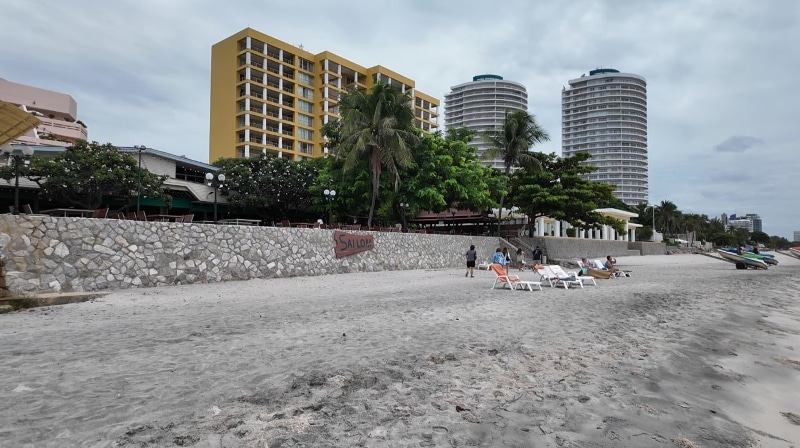
But it’s not as convenient as Chiang Mai in terms of daily life. There are fewer international flights (you’ll need to drive 3 hours to Bangkok), and healthcare options are more limited. Chiang Mai also has a stronger social scene and more things to do year-round.
Find out more: What Does A THB50,000 (US$1,350) Monthly Budget Get You in Hua Hin?
Chiang Mai vs Chiang Rai
Living in Chiang Rai is quite similar to Chiang Mai but Chiang Rai is smaller, more laid back, and even cheaper than Chiang Mai. It has a strong local feel and a slower pace of life.
However, Chiang Mai offers more variety, more restaurants, bigger malls, better hospitals, and more activities. Both cities struggle with air pollution during the burning season, so you won’t avoid it by going north.
Chiang Mai vs Phuket
This is a completely different lifestyle. Phuket is for beach lovers. You get ocean views, water sports, and a more resort-style way of living. Phuket is also better for year-round air quality, but the cost of living and property rental is much higher, especially near the beach. It’s also busier with tourism all year.
Your Chiang Mai Move Checklist
If you’re planning to retire in Chiang Mai, here’s a simple checklist to help you get started the right way:
- Visit during both the rainy season and burning season (Feb–Apr) to see if the climate works for you. Book a serviced apartment for 1–2 months. Long-term rentals are easier to find once you’re here.
- Open a Wise account to receive your pension or transfer money from abroad without high Thai bank fees. Then move money to your Thai bank to meet your visa and daily spending needs.
- Prepare your visa application early. The Non-Immigrant O-A is the most popular choice for retirees. You’ll need to meet the age and financial requirements, and have everything ready before your extension date.
- Get multiple health insurance quotes. Compare both Thai-based plans (for visa) and international providers. Choose what fits your health needs and budget.
- Open a Thai bank account as soon as you can. It’s important for meeting visa requirements and managing local payments. Many bank branches in Maya and Central Festival are familiar with helping retirees.
- Find long-term accommodation. If you’re unsure where to live, try out a few areas first. Rent short-term in places like Nimman, Santitham, or Hang Dong and see which one fits your lifestyle. No area is perfect for everyone.
- Join an expat event in your first week. Groups like Chiang Mai Expats Club and InterNations are great places to meet others and get settled.
- Keep emergency numbers saved. Dial 1669 for ambulances. Major hospitals like Chiang Mai Ram and Bangkok Hospital Chiang Mai have English-speaking staff.
Frequently Asked Questions About Retiring in Chiang Mai
Here are some common questions retirees have about living in Chiang Mai.
Is Chiang Mai a good place for foreigners to retire?
Yes, it’s one of the most popular retirement spots in Thailand for both foreigners and locals. The lifestyle is relaxed, the cost of living is affordable, and the city offers a mix of nature and convenience. Many retirees live here full-time or part of the year.
That said, there are two main downsides. The air pollution during the burning season (Feb to Apr) can be bad, and it’s far from the beach.
How much does it cost to retire in Chiang Mai?
You can live a simple life on about 33,000 THB (US$900) per month. If you want more comfort and some travel, 55,000 to 70,000 THB (US$1,500 to 2,000) gives you a modern condo, a mix of Western and Thai dining, and short trips. Rent is usually the biggest cost.
Is healthcare good in Chiang Mai for retirees?
Yes. Chiang Mai has several good private hospitals with English-speaking staff. Common treatments and checkups are affordable. But insurance gets more expensive as you age. Some retirees don’t get insurance and pay out of pocket.
Others buy basic plans just to meet visa rules.
Can foreigners buy property in Chiang Mai?
Foreigners can’t own land, but you can legally buy a condo. Most long-term retirees rent instead since it’s more flexible and cheaper. If you’re married to a Thai citizen, you’ll have more options for buying a house.
What visa do I need to retire in Chiang Mai?
Most retirees apply for the Non-Immigrant O-A visa. You need to be over 50 years old and show 800,000 THB in a Thai bank account for at least two months before applying. You can check our full retirement visa guide for more info.
What’s the air quality like?
Chiang Mai has good weather most of the year. But from February to April, the burning season causes bad air quality. Some retirees leave for the beach during this time or stay indoors with HEPA air filters.
Is it easy to meet people and make friends?
Yes. Chiang Mai has a large and welcoming expat community. You can meet people at InterNations events, Chiang Mai Expats Club, pottery workshops, cooking classes, or volunteer groups. It’s easy to find others living a similar lifestyle.
Special Thanks

I would like to give special thanks to my friend, Vanessa Rodriguez, the founder of RetireChiangMai, for helping me with this article.
Vanessa has been living in Thailand for many years and now runs a business that helps people relocate to Chiang Mai. Her knowledge and experience have been invaluable in shaping this guide.





